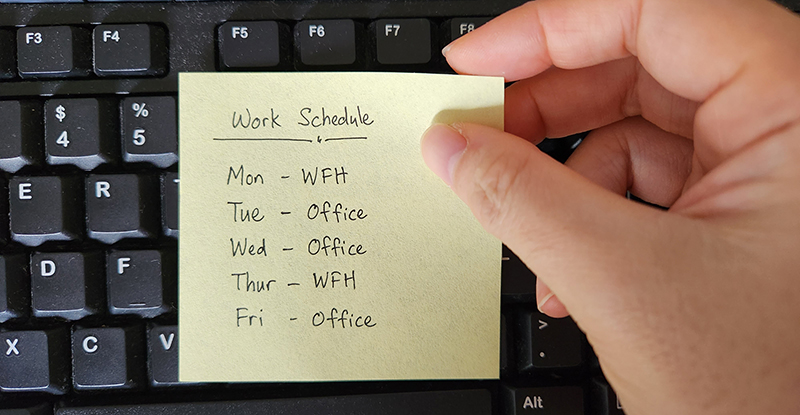
In our podcast episode, Sharon Edwards, presentation skills coach shares tips on how we can improve our communication skills to influence others. Part of our Coffee Chats with CPABC podcast series.
Attend Sharon's live webinar from July 20-21 to learn new skills to clearly and effectively get your message across, and communicate with influence to support your success as a leader and manager. Register today.
Does speaking up in a boardroom or a meeting give you anxiety? Does this anxiety affect your ability to share your ideas and expertise? Has this lack of confidence affected your career growth? Have you had enough yet?
Sharon Edwards is an experienced presentation skills coach who has helped many people overcome their personal barriers to not only communicate effectively, but also influentially.
In our podcast episode, Sharon shared some helpful advice on how we can improve our communication in the workplace and in our personal lives. Below are some highlights from the conversation.
What are some of the downsides that can happen when someone isn't equipped with effective communication skills?
Sharon: There are a number of downsides, but the biggest one is that if you are not delivering your best through your communications, you're essentially harming your own cause. A lot of people have made considerable time and monetary investments in themselves through their education and professional work. But if someone is unable to effectively communicate their knowledge and skills, they won’t be able to achieve the return on investment they deserve.
When someone isn’t able to share what they know effectively, then their employers won’t know the value this person can bring to the organization. As a result, this person is unlikely to advance in the way they otherwise would because others can’t see what this person is truly able to do.
What’s one of the first steps that you recommend people take to improve their communication?
Sharon: Being present in conversations is key and to do that, you need to have strong listening skills. We think at about 1,200 words per minute, but we only speak somewhere between 250 to 330 words per minute. As a result, when someone is talking to you, you might assume you know everything they’re trying to tell you before they’re done. Even before the speaker is finished, your mind may have already moved past the conversation. Perhaps you’ve already formulated your response. But in fact, you might be missing something vital that would have completely changed your response.
A major reason why we have trouble truly listening to each other is because of multitasking. I’m not telling people to stop multitasking, because we can’t avoid it in our busy lives. However, if you’re in a situation where it’s important to get all the right information, then I encourage you to only focus on the conversation. Don’t look at additional devices, and make sure you’re listening with open ears and aren’t thinking about anything else while the other person is speaking – not even about how you’ll respond. Doing this is much more important than being perfect and polished in our communication.
Besides not fully listening to others, what are some other common barriers that prevent people from communicating with influence?
Sharon: Personal belief systems are major barriers, and these belief systems are influenced by culture, familial, and gender-based influences, among others. An example could involve your family situation while growing up. If you are the youngest among your siblings, perhaps you had to scream the loudest to be heard. If you were the oldest, maybe you were always “right” and your siblings rarely challenged you. How does this affect your professional communication style? If you're the oldest, perhaps you're not great at receiving feedback or criticism. This will affect how influential you are in certain circumstances.
Over the years, I've had a lot of interesting examples of how belief systems can impact communication ability. One of my clients had a problem doing presentations, and presenting road shows for investor relations was a critical component of his job. He had a very quiet voice and his audience couldn’t hear him. People assumed he wasn’t confident or truly believed what he was talking about.
Initially, I worked with him to try to increase his vocal volume, but that didn’t seem to get us anywhere. I dug deeper and asked, “Were there any messages in your house when you were growing up about speaking up?" And he said, "Oh, yeah. We were told that we don't brag in our family."
This man is in a position where he needs to brag. He's the head of a multimillion-dollar corporation, but when he spoke, it was like his mom was on his shoulder saying, "Don't do that. We don't brag." Once we uncovered this belief system, I said to him, "You need to imagine saying to your mom, ‘It's okay, mom. I got this. It's alright.'" After he started doing this, he went from 0 to a 150 in an instant! He needed to be aware of the barriers preventing him from standing up in front of people and convincing them that his company was worth investing in.
I've also worked with some women over the years who approached work situations feeling they had the weight of the entire gender on their shoulders. They thought, "I'm a woman in a position of strength and I cannot get this wrong." They would get overburdened with this, wanting to be perfect all the time. Men have their own version of this kind of pressure as well.
There are many different belief systems that can affect communication. Before I start helping someone with their communication skills, I want to figure out what’s driving their insecurity, nervousness, or anxiety so I can get it off the table once and for all. I want people to say to themselves, “I don't have to keep thinking this over and over again. I can change this thinking and improve my skills."
What are some keys to being influential?
Sharon: You need to understand what drives your audience, or in other words, their currency. For example, sales people’s currency is making money, while engineers are all about building and designing things, and achieving innovation. In order to influence people, you need to figure out how you can fit into their world.
I find that CPAs often come in with a lot of financial information, and try to dump all of it onto their audiences without first having made a connection. A lot of this effort is wasted because the information either overwhelms or doesn’t resonate with the intended audience. Effective and influential communication happens when a speaker has given thought to what their audiences need and what motivates them.
You also have to meet your audience where they are. If you're delivering bad news, there’s going to be an elephant in the room and you can’t just ignore it. You’ll have to say something along the lines of, "This is not the news you're going to want to hear, but it's important. Here's how we're going to deal with it." And then you would talk about the problem’s solution. But you have to start off with meeting your audience where they are and acknowledging their emotions and sentiments.
Vince Kanasoot is a communications specialist for CPABC.



